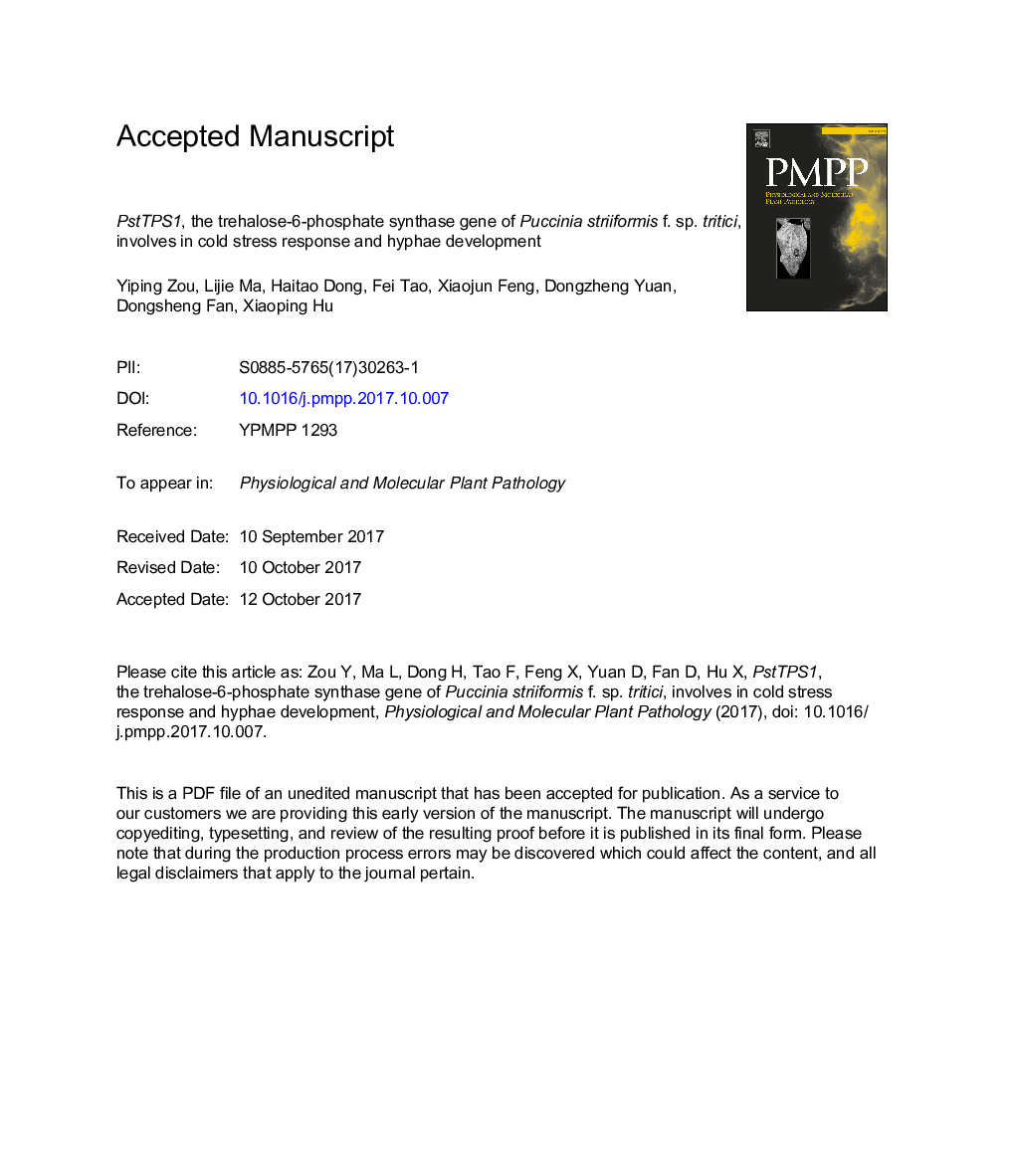| Article ID | Journal | Published Year | Pages | File Type |
|---|---|---|---|---|
| 8649313 | Physiological and Molecular Plant Pathology | 2017 | 29 Pages |
Abstract
Trehalose-6-phosphate synthase (TPS1), encoding the first enzyme in TPS-TPP pathway of trehalose biosynthesis, play an important role in response to numerous environmental stresses in microorganisms. However, little is known about the role of TPS1 in plant pathogenic microorganisms. This study was conducted to investigate the relationship between TPS and cold adaptation of wheat stripe rust pathogen Puccinia striiformis f. sp. tritici (Pst) as well as the role of TPS in pathogenesis. A gene named PstTPS1 was cloned from cDNA of Pst CYR32 isolate, containing the conserved regions of the TPS family. Yeast complementation assay indicated that PstTPS1 was involved in trehalose-6-phosphate synthase. Transcription profiles results showed that Pst responded to temperature stress by dramatically changing its PstTPS1 mRNA. The decreased growth temperature of Pst from 16 °C to 5 °C or 0 °C both led to a rapid increase in PstTPS1 mRNA, and the increased growth temperature from 5 °C to 16 °C had the opposite effects. The length of infection hyphae and infection area decreased significantly in PstTPS1-silenced plants. This study indicates that PstTPS1 gene is related to the cold adaptation of Pst and is also involved in the pathogenicity of Pst by limiting its hyphae expansion.
Related Topics
Life Sciences
Agricultural and Biological Sciences
Plant Science
Authors
Yiping Zou, Lijie Ma, Haitao Dong, Fei Tao, Xiaojun Feng, Dongzheng Yuan, Dongsheng Fan, Xiaoping Hu,
